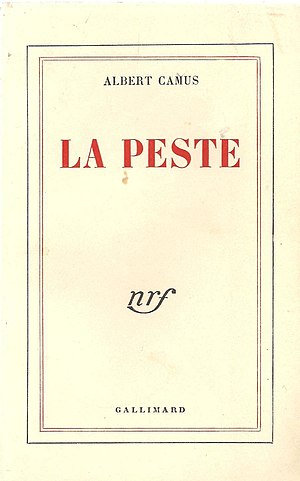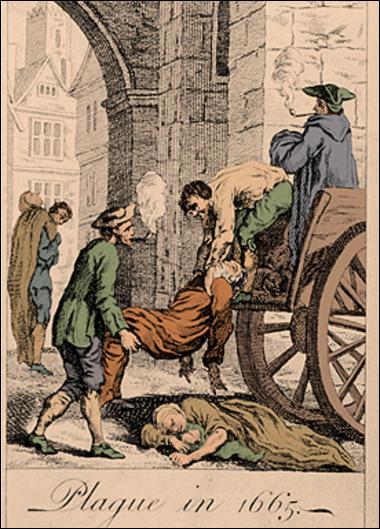Not wanting to say it out loud, and shout it I surely will not. Neither in a state of denial, nor pretending to be. And denying not the fear - that refuses to be felt. As an aside instead, here then said: To be imagined now: this grimace not feigned. Forced disaffection; barely - or not even - restrained. Days - each one, and to follow fast, to Weeks turn, to more thereof- to this date at the very least. Distress so rarely exposed is creeping now near, nearer to Fate shared. Not the cholera, no love here - no, not in this time - not with this pest. (This plague upon all our houses.) Hovering, menacing - dictating our existence now to that which may not come. -Anne Dromache, April 25, 2020.
Some solace: words written and lost along the way or never found, searched for or come upon by chance, may find their time again and the readers they were waiting for.
Everyone it seems has a recommended reading relevant to this time. For me, one come’s immediately to mind: Gabriel Garcia Marquez’s Love in the Time of Cholera – I loved this book years ago, but will not read it again now. My hefty flirtation with Latin American magic realism was a long time ago, and has life associations that I’d rather not disturb but confine to memory … I’ve been to Aracataca, I’ve not lived a hundred years…A fatalist would find confirmation and the inevitability of it all in One Hundred Years of Solitude. Many have mentioned Daniel Defoe’s The Journal of the Plague Year, which is freely available in many corners of the Internet – NO copyright! Hardly surprising given it was written in 1722 about the 1665 Great Plague of London! And then there is Samual Pepys’ diary version of the same plague – here is a collection of relevant extracts. Pepys is fun to dive into I must admit – in a very bawdy sort of Renaissance way, though just how much fun I’m up to in this regard at the moment I’m not at all sure. A book that I know of and for other reasons has been on my reading list for quite some time (and that I haven’t heard mentioned of late) is Year of Wonders (2001) by Geraldine Brooks, again set during 1665-66.
Then, there is Tony Judt’s (d. 2010) essay which I have just been reading, and probably only available in its entirety for a limited time, in The New York Review of Books November 29th 2001, on Albert Camus’ The Plague. (And which was actually his preface for a new Penguin translation of the same.)
Judt’s piece was written only months after 9/11, and I remember how adamant I was back then that nothing so strange would ever happen again in my lifetime, but now it is Spring 2020 and the world is in the midst of biological warfare being waged by Nature; with consequences far greater than that of the very Human terrorists of those years ago. How easily the metaphor extends, and for both. And who is the enemy anyway, and is a war ever won? Should Camus’ literary construct of a biological epidemic be illustrative of moral contagion? What then can this very real natural event that we are now living through inform of the moral fabric of societies under stress? And is this here and now not the strangest of times?

Judt proffers the point of view that beyond the outbreak of plague in Oran as an allegory of France’s moral distress at the end of the war (that expression ‘plagued by guilt’ comes to my mind – whether there is an analogous French expression I don’t know), Camus’ personal and situational dilemmas also fed greatly into this work; Judt tells us that in 1941 suffering from recurring tuberculosis Camus was sent to Oran for treatment, and referring to The Plague says:
…an intensely personal book. Camus put something of himself—his emotions, his memories, and his sense of place—into all his published work […but…] even by his standards The Plague is strikingly introspective and revealing. Oran, the setting for the novel, was a city he knew well and cordially disliked, in contrast to his much-loved home town of Algiers […it was…] boring and materialistic and his memories of it were further shaped by the fact that his tuberculosis took a turn for the worse during his stay there. […]he was forbidden to swim […] and was constrained to sit around for weeks on end in the stifling, oppressive heat that provides the backdrop to the story.
On ‘The Plague’, Tony Judt, NYRB, Nov 29 2001
And, the writer Camus found little respite when the next year he was sent to recuperate in Le Chambon-sur-Lignon, a remote mountain village in central France, and found himself instead in the midst of the German occupation that was a reaction to the Allies landing in North Africa; separating him from homeland and family. Tony Judt says it so:
Illness, exile, and separation were thus present in Camus’s life as in his novel, and his reflections upon them form a vital counterpoint to the allegory. Because of his acute firsthand experience, Camus’s descriptions of the plague and of the pain of loneliness are exceptionally vivid and heartfelt. It is indicative of his own depth of feeling that the narrator remarks early in the story that “the first thing that the plague brought to our fellow citizens was exile,” and that “being separated from a loved one…[was] the greatest agony of that long period of exile.”
On ‘The Plague’, Tony Judt, NYRB, Nov 29 2001
Hopefully I haven’t over quoted, but it is a wonderful essay, and certainly encourages me to read The Plague by Albert Camus – a book it seems for this and maybe all times. (And, also reminds me of, in the death of Tony Judt, the too early loss of one of the most original – and most readable – intellectual voices of the last decades.)

